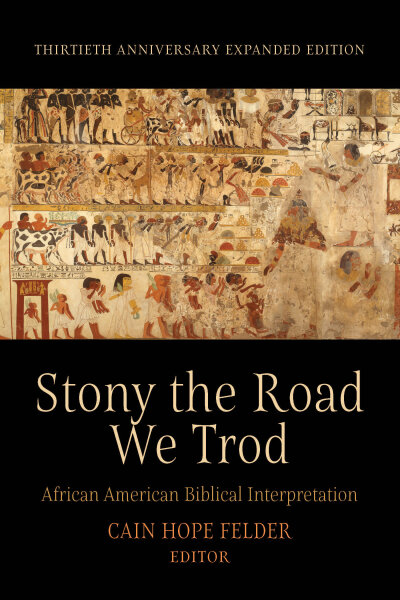"The book represents a major shift--a paradigm shift--wherein the eurocentrism of the scholarship in the dominant culture has been taken off its scholastic pedestal. This has been replaced by an Afrocentrism which accents the experiences of African Americans and relocates the context in which biblical interpretations are done."
The publication of Stony the Road We Trod thirty years ago marked the emergence of a critical mass of Black biblical scholars--as well as a distinct set of hermeneutical concerns. Combining sophisticated exegesis with special sensitivity to issues of race, class, and gender, the authors of this scholarly collection examine the nettling questions of biblical authority, Black and African people in biblical narratives, and the liberating aspects of Scripture. The original volume reshaped and redefined the questions, concerns, and scholarship that determine how the Bible is appropriated by the church, the academy, and the larger society today.
To the original eleven essays this expanded edition adds a new introduction by Brian K. Blount and three new chapters by Kimberly D. Russaw, Shively T. J. Smith, and Jennifer T. Kaalund. Not only does Blount's new introduction access the impact of the first edition, but the new contributions extend the implications of Cain Hope Felder's vision for the book.
- Publisher Fortress Press
- Format Hardcover
- ISBN 9781506472041
- eBook ISBN 9781506472058
- Dimensions 6.25 x 9.25
- Pages 352
- Publication Date November 30, 2021
Endorsements
Jacquelyn Grant, Interdenominational Theological Center
"A landmark volume . . . of rigorous scholarship, laying out the issues in African American biblical hermeneutics clearly, cogently, and prophetically."
Gale A. Yee, Episcopal Divinity School
"Stony the Road We Trod works out of the powerful interfacing of the heritage of African American Christianity and the presence of African American scholars in theological academies of the US. I want to read it as both challenge to and expression of theologies of prophetic pragmatism."
Rebecca S. Chopp, Emory University
Table of Contents
Introduction - Cain Hope Felder
New Introduction - Brian K. Blount
PART I: THE RELEVANCE OF BIBLICAL SCHOLARSHIP AND THE AUTHORITY OF THE BIBLE
1. Interpreting Biblical Scholarship for the Black Church Tradition
Thomas Hoyt, Jr.
2. The Hermeneutical Dilemma of the African American Biblical Student
Renita J. Weems
3. Reading Her Way through the Struggle: African American Women and the Bible
Renita J. Weems
PART II: AFRICAN AMERICAN SOURCES FOR ENHANCING BIBLICAL INTERPRETATION
4. The Bible and African Americans: An Outline of an Interpretative History
Vincent L. Wimbush
5. "An Ante-bellum Sermon": A Resource for an African American Hermeneutic
David T. Shannon
PART III: RACE AND ANCIENT BLACK AFRICA IN THE BIBLE
6. Race, Racism, and the Biblical Narratives
Cain Hope Felder
7. The Black Presence in the Old Testament
Charles B. Copher
8. Beyond Identification: The Use of Africans in Old Testament Poetry and Narratives
Randall C. Bailey
PART IV: REINTERPRETING BIBLICAL TEXTS
9. Who Was Hagar?
John W. Waters
10. The Haustafeln (Household Codes) in African American Biblical Interpretation: "Free Slaves" and " Subordinate Women"
Clarice J. Martin
11. An African American Appraisal of the Philemon-Paul-Onesimus Triangle
Lloyd A. Lewis
PART V: NEW Directions
12. "Undaunted: Reading Miriam for the Sisters They Tried to Erase"
Kimberly Russaw
13. "Witnessing Jesus hang: Reading Mary Magdalene's View of Crucifixion through Ida B. Wells' Chronicles of Lynching"
Shively T.J. Smith
14. "You Can't See What I Can See: Reading Black Bodies in Galatians"
Jennifer Kaalund
